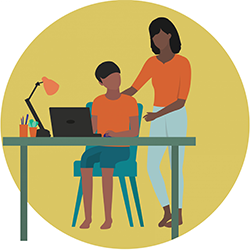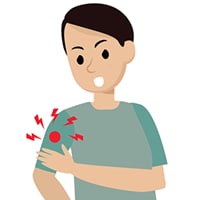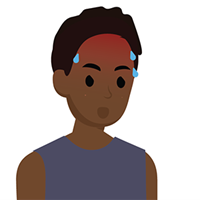En atención a la creciente preocupación sobre la confianza en...
Leer más
COVID-19 Vaccines for Children and Teens

Although fewer children have been infected with COVID-19 compared to adults, children can:
- Be infected with the virus that causes COVID-19
- Get sick from COVID-19
- Spread COVID-19 to others
CDC recommends everyone 12 years and older should get a COVID-19 vaccination to help protect against COVID-19. Widespread vaccination is a critical tool to help stop the pandemic. People who are fully vaccinated can resume activities that they did prior to the pandemic. Learn more about what you and your child or teen can do when you have been fully vaccinated. Children 12 years and older are able to get the Pfizer-BioNTech COVID-19 Vaccine.
Children between the ages of 2 and 12 should wear a mask in public spaces and around people they don’t live with.
Info for Families

Find a COVID-19 Vaccine for Your Child
- Check your local pharmacy’s website to see if vaccination walk-ins or appointments are available.
- Check with your child’s healthcare provider about whether they offer COVID-19 vaccination.
- Contact your state or local health department for more information.
Help Protect Your Child and Your Family
Getting a COVID-19 vaccination can help protect your child from getting COVID-19. Early information shows that the vaccines may help keep people from spreading COVID-19 to others. They can also help keep your child from getting seriously sick even if they do get COVID-19. Help protect your whole family by getting yourself and your children 12 years and older vaccinated against COVID-19.
Information about COVID-19 Vaccines for Children and Teens
Cases of myocarditis and pericarditis in adolescents and young adults have been reported more often after getting the second dose than after the first dose of one of these two mRNA COVID-19 vaccines. These reports are rare and the known and potential benefits of COVID-19 vaccination outweigh the known and potential risks, including the possible risk of myocarditis or pericarditis.
Get a COVID-19 vaccine for your child as soon as you can.
- COVID-19 vaccines are safe and effective.
- COVID-19 vaccines have been used under the most intensive safety monitoring in U.S. history, which includes studies in adolescents.
- Your child will need a second shot of the Pfizer-BioNTech COVID-19 Vaccine 3 weeks after their first shot.
- Your child can’t get COVID-19 from any COVID-19 vaccine, including the Pfizer-BioNTech vaccine.
- Your child may get a COVID-19 vaccine and other vaccines at the same visit or without waiting 14 days between vaccines.
Prepare for your child’s vaccination visit.
- Get tips for how to support your child before, during, and after the visit.
- Talk to your child before the visit about what to expect.
- Tell the doctor or nurse about any allergies your child may have.
- Comfort your child during the appointment.
- To prevent fainting and injuries related to fainting, your child should be seated or lying down during vaccination and for 15 minutes after the vaccine is given.
- After your child’s COVID-19 vaccination, you will be asked to stay for 15–30 minutes so your child can be observed in case they have a severe allergic reaction and need immediate treatment.
Possible side effects
Your child may have some side effects, which are normal signs that their body is building protection.

- Pain
- Redness
- Swelling

- Tiredness
- Headache
- Muscle pain
- Chills
- Fever
- Nausea
These side effects may affect your child’s ability to do daily activities, but they should go away in a few days. Some people have no side effects.
Ask your child’s healthcare provider for advice on using a non-aspirin pain reliever and other steps you can take at home to comfort your child. It is not recommended you give pain relievers before vaccination for the purpose of trying to prevent side effects.
Get started with v-safe
Ask your child’s healthcare provider about getting started with v-safe, a free, smartphone-based tool that uses text messaging and web surveys to provide personalized health check-ins after your child receives a COVID-19 vaccination. Through v-safe, you can report any side effects your child may have after vaccination. V-safe also reminds you to get your child’s second dose. Learn more about v-safe.
https://www.cdc.gov/coronavirus/2019-ncov/vaccines/recommendations/adolescents.html




